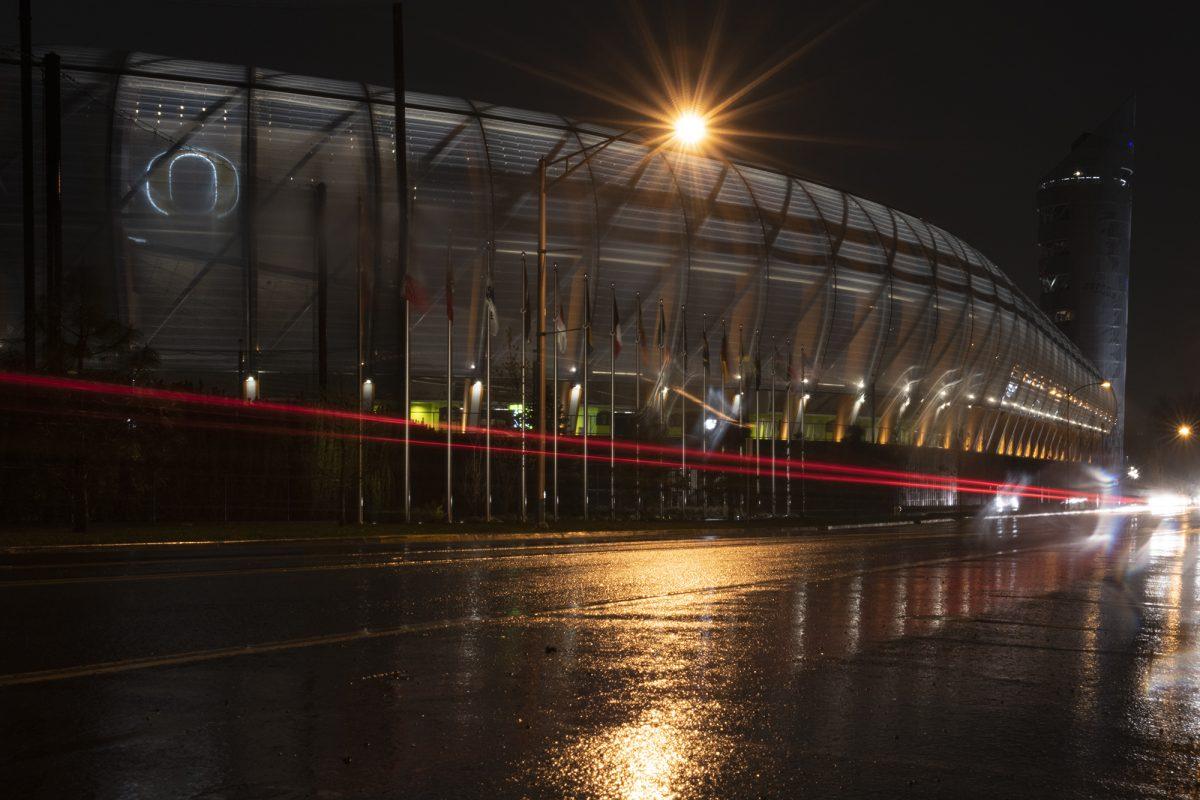The lights dimmed, and the soft murmur of the crowd quickly hushed. The trill of the orchestra, vibrant set and ethereal dancers, in a moment, transported the audience to another world.
Outside the stage doors, the escapism of the theater gives way to grand and pristine sports arenas and the yellow and green paraphernalia that are ever-present in the college town of Eugene.
Among the dominant presence of sports culture in Eugene exists a vibrant performing arts scene. From whimsical ballet performances to contemporary novel adaptations to educational folk-singers, Eugene’s performing arts scene offers audiences accessible, diverse and immersive experiences for the community. Eugene attracts experienced innovators in performing arts from across the country, making the arts scene their playground for expression.
“A good show is a good show, a good game is a good game, and the seats are there to be filled by those who want to fill them,” says Eric Baumen. As the Lane County Art Council program director, Baumen is involved with a myriad of artists and their creations. Though athletics yield a greater advertising budget, Baumen says that arts and sports in Eugene can support each other.
Eugene has a history of art that spans decades. From the early 1900s, Eugene has championed performing arts. When timber was the primary economic driving force in Oregon world-class European performers would come to Eugene and play shows to keep logging families entertained. This fostered a deep appreciation for the arts, says Rich Hobby, marketing director for the Hult Center.
When the local high school was no longer big enough to host the growing audiences for performances, the community funded the Hult Center in the 1970s.
Although many people may associate the Hult Center with a more classic definition of performing arts reduced only to “white people playing cellos,” Hobby says, the venue has offered a diverse range of entertainment since its inception — from rock shows to dance performances to EDM. As show houses have evolved, they have begun to offer more culturally relevant pieces that reflect the experiences of the community.
The 10X10 series, which allows community members to see emerging performers from around the country for $10 a ticket, is one way that the Hult Center offers accessible entertainment for Eugene art connoisseurs.
Wielding a guitar, angelic voice, and a sense of humor that left the audience chuckling throughout the performance, Julian Saporiti who goes by the stage name “No-No Boy” — sang the often untold stories of Asian Americans in the 10X10 series.
One song told the true story of a jazz band in Wyoming that would travel between internment camps and perform. A slide show behind him played a kaleidoscope of images depicting joy and perseverance amid internment, discrimination and hatred.
It’s this type of event that makes Rich believe there’s a higher purpose to art. “Art can give you a sliver of empathy into what other people are going through,” he says.
While the Hult Center is the premier performing arts show house in the area, an array of eclectic performers and playhouses make up a vibrant art landscape throughout Eugene.
“At least they’ll know that I’m a person, and I act, and I’m here,” Oregon Contemporary Theater director, actor and educator Inga Wilson says.
Oregon Contemporary Theater brings contemporary issues to the stage. Wilson recently directed a stage adaptation of the novel “Tiny, Beautiful Things,” a production that delves into stories of identity, trauma, and loss, ultimately bringing humanity to all experiences.
Brought up in Minnesota, Wilson was exposed to both sports and the arts during her childhood. Her father was fervent that she try every sport her school offered, while her mother encouraged piano and singing lessons. Wilson fell into theater in high school naturally because of her talent and passion for singing. Sports took a backseat as she pursued her new found love of telling stories on stage.
Wilson remembers showing up terrified at large casting calls in New York City in her early days of acting. Thousands of other aspiring actors would gather at these casting calls in hopes of making it big on stage.
“There’s a kind of magic of putting yourself out there over and over,” Wilson says.
Eventually, Eugene became home to Wilson, as she brings her expertise to shows across Eugene, and more recently to direction. She says that Eugene is a gathering place that people come to after living in other cities, and that the collaborative spirit of arts in Eugene allows her to share space with the abundance of other talented performers in town.
Scott Frazier-Maskiell, originally from Long Island, New York, began acting from a young age, when he felt compelled to embody the presence of Gene Kelley from “Singing in the Rain.” After a career performing in New York and on national stages and falling in love with teaching, Frazier-Maskiell moved to Eugene and opened Pegasus Playhouse in 2018, a theater dedicated to fostering young talent and creating tongue-in-cheek productions that cover important issues in an accessible way.
“Because I’m a big kid, it’s more like I’m among them, rather than over them,” Fraizer-Maskiell says about directing his crew of passionate young performers.
Frazier-Maskiell hopes to bring and instill the spirit of “insanity, excellence and empathy” in Eugene’s performing arts and in the aspiring actors at Pegasus Playhouse.
Like Frazier-Maskiell and Wilson, “the pockets of creatives that are in our community get to be highlighted and celebrated,” Baumen says, due to the small-town spirit of Eugene. Unlike in larger cities where the individual artist can be lost in the sheer volume of talent, Baumen says that. Eugene’s art purveyors can play and create without the overwhelming stress of competition and making a living off of their art.
And Baumen says that artists in Eugene pour their hearts into what they create.
Despite the infamous dreary weather of the Willamette Valley, bursts of sunlight can be found on street corners and in intimate theaters, where artists share their creations with eager spectators.
On a dark, drizzly November night in Downtown Eugene, past a few lone bars blaring rock music and showcasing that night’s game on televisions, a jazz band plays jubilantly outside to a congregation of elated passersby. A crowd of young and old gather in their best dress for the ballet at the Hult Center down the street. Cinderella and Prince Charming sway and leap in their final dance against the backdrop of a deep indigo night sky.
After filling seats at a ballet, a folk concert telling the stories of Asian Americans throughout history and a play celebrating the complexities of humanity, Eugene’s residents may gear up in green and yellow and cheer on the Oregon Ducks at Autzen Stadium.
To Wilson, this duality present in Eugene is the elation of “being in a room full of people who are all experiencing the same ephemeral thing.”


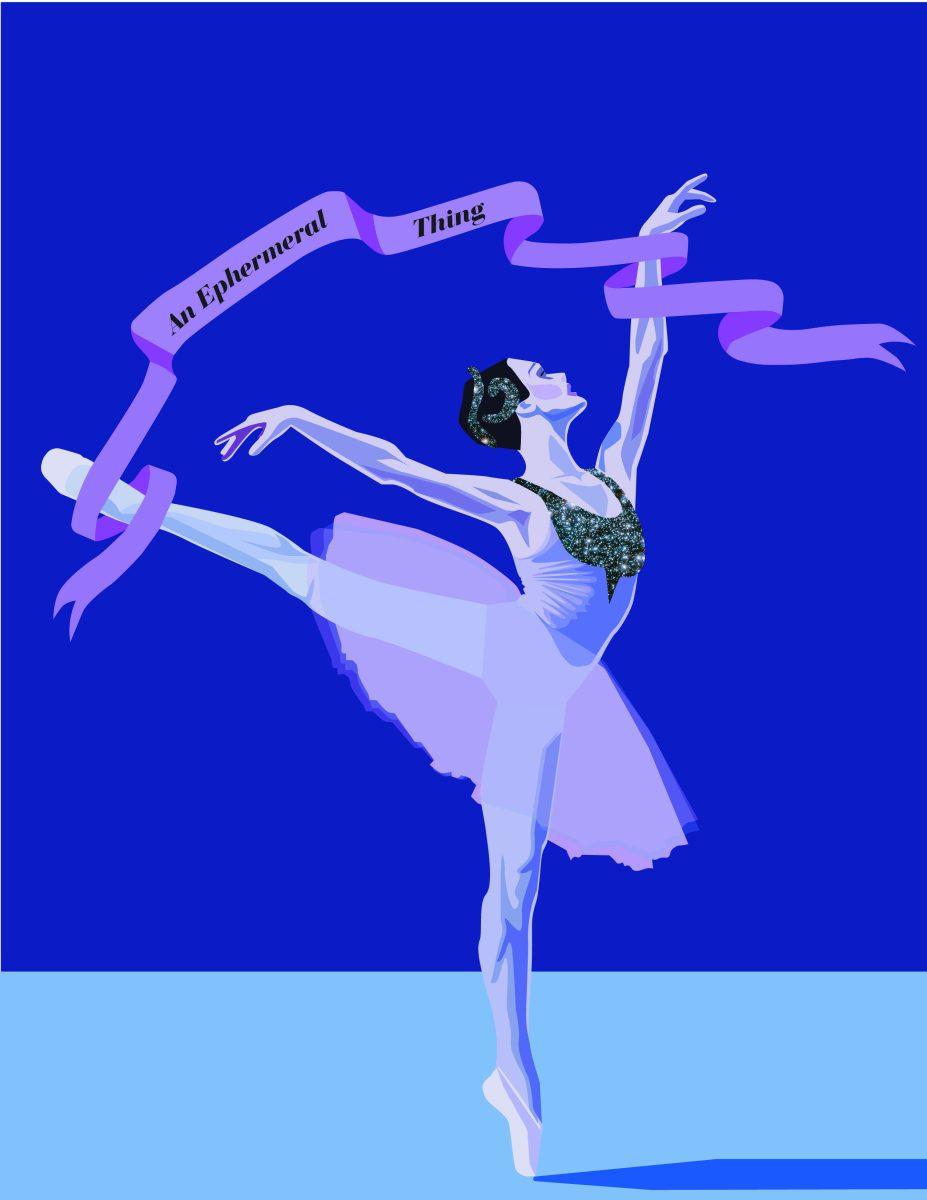

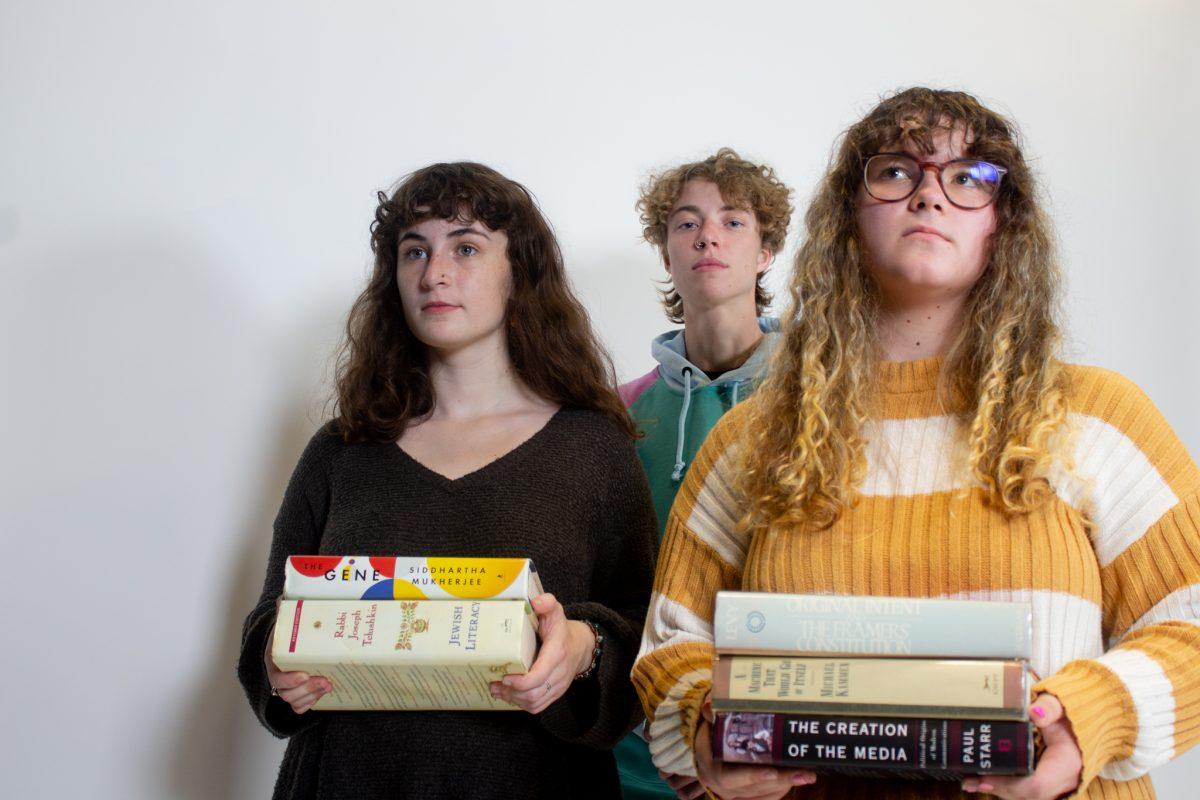
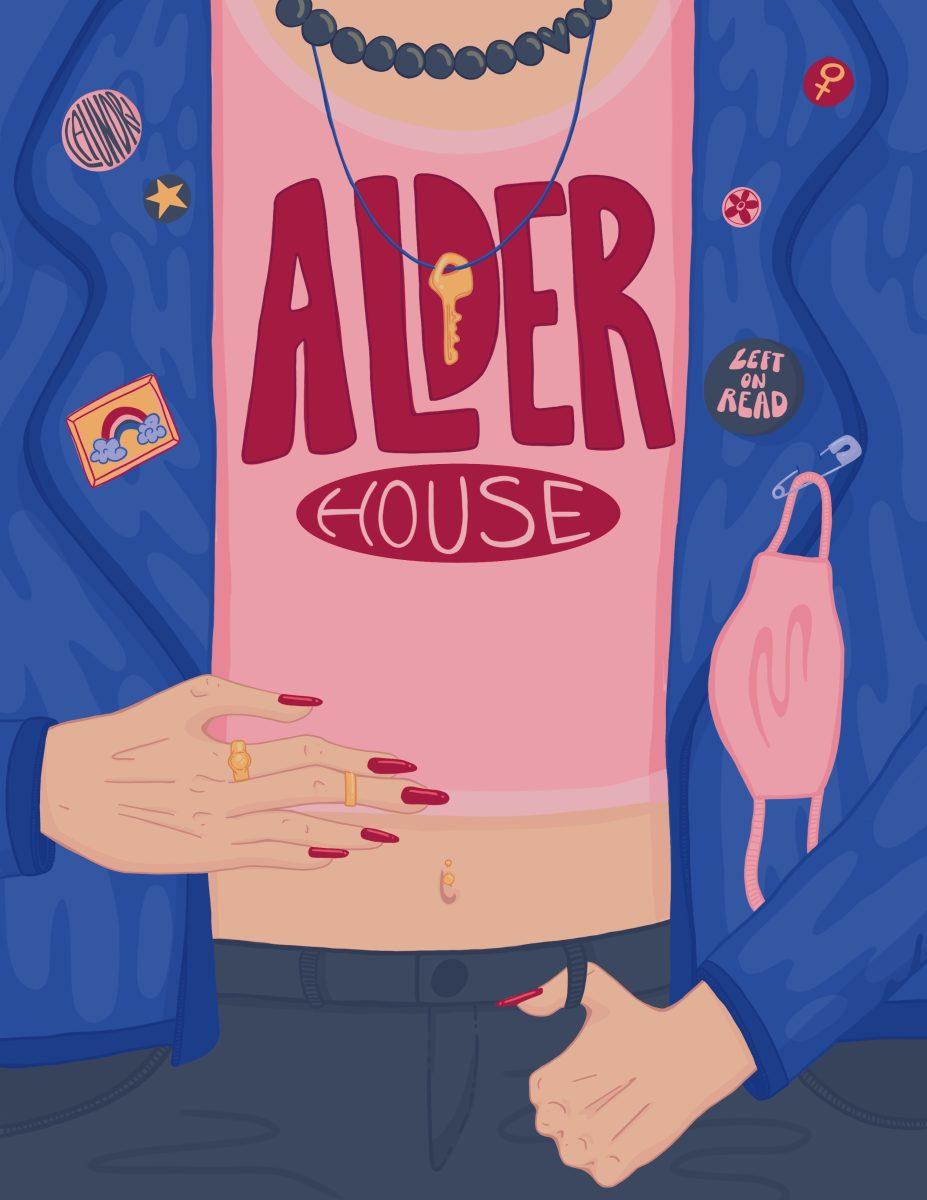
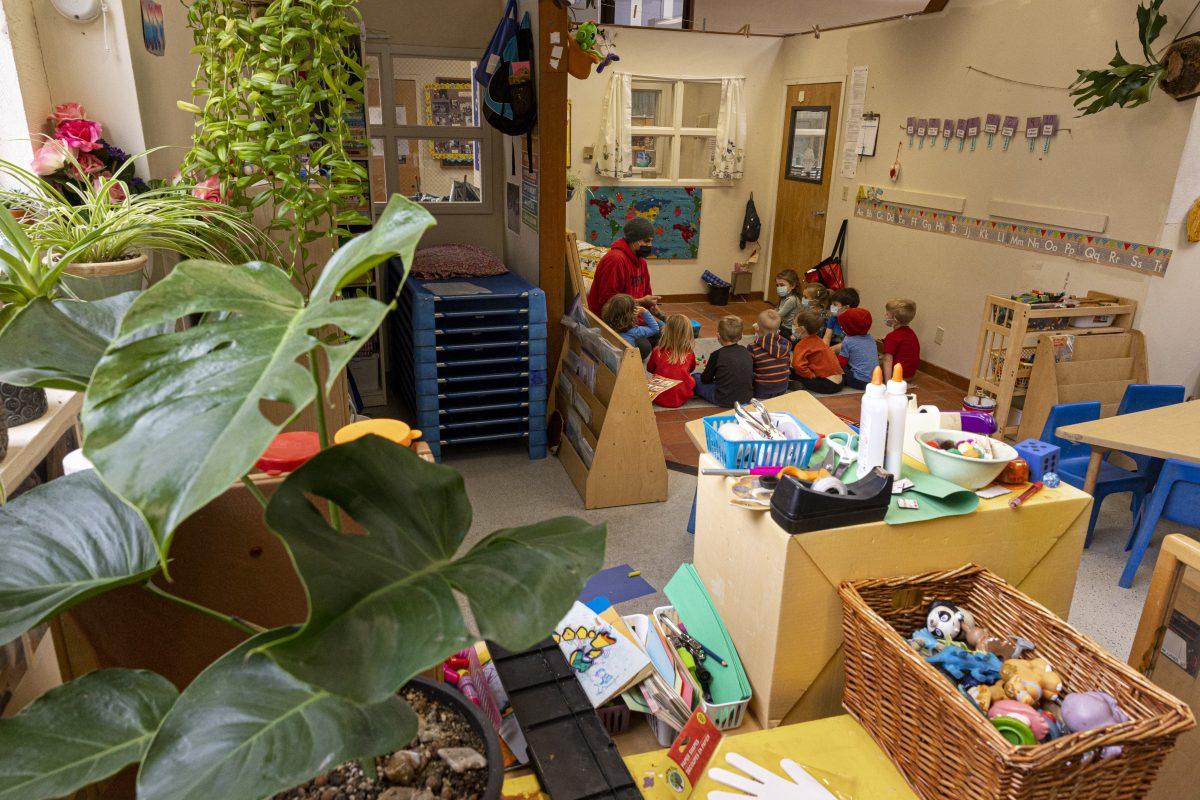
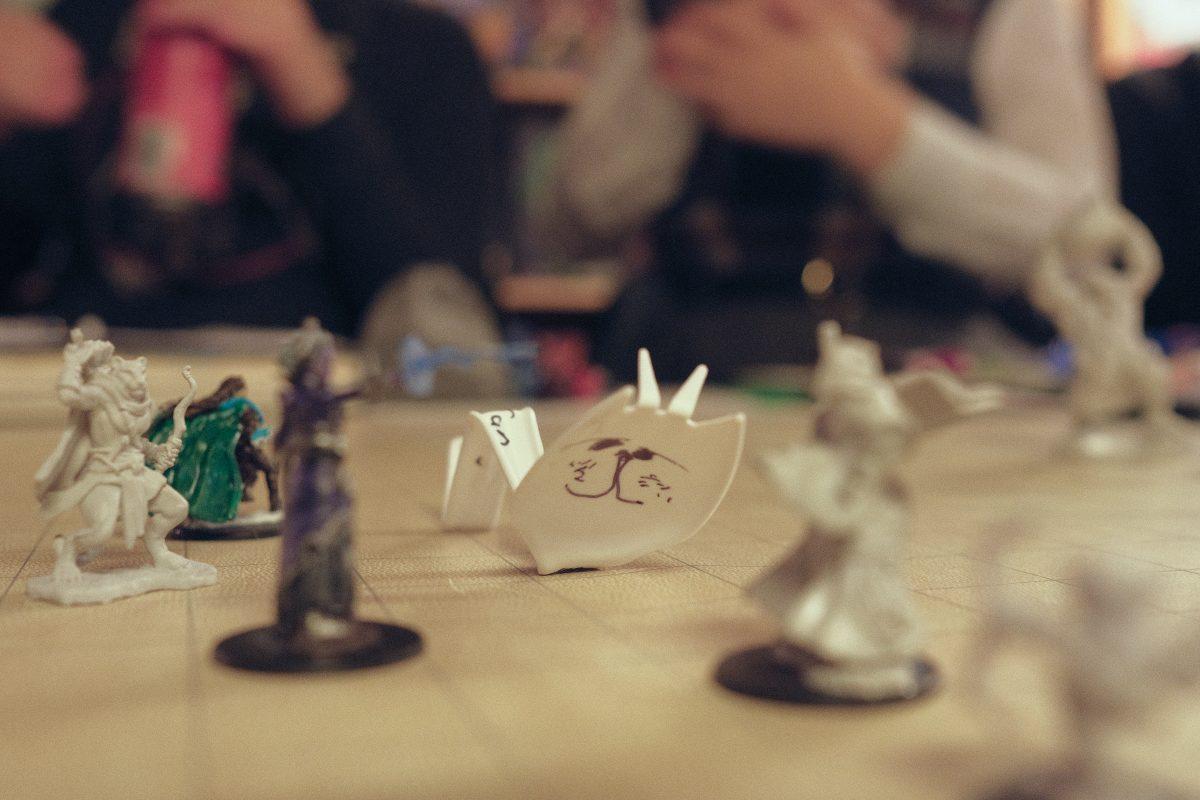
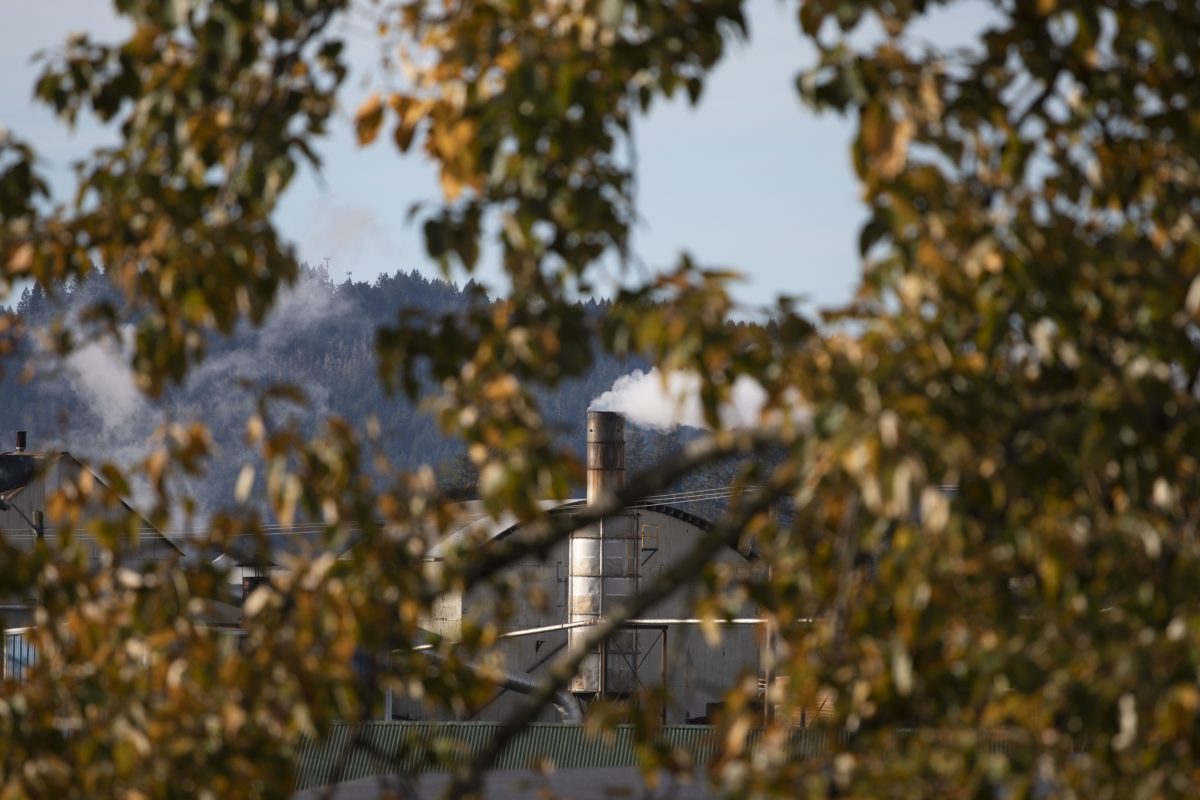


![[Photo Courtesy of the Lara Family]
Ruben embraces his beloved childhood goat, Katrina.](https://ethos.dailyemerald.com/wp-content/uploads/2025/05/katrina-1-1060x1200.jpg)




